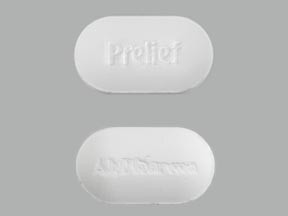Calcium glycerophosphate Interactions
There are 61 drugs known to interact with calcium glycerophosphate, along with 4 disease interactions. Of the total drug interactions, 5 are major, and 56 are moderate.
- View all 61 medications that may interact with calcium glycerophosphate
- View calcium glycerophosphate disease interactions (4)
Most frequently checked interactions
View interaction reports for calcium glycerophosphate and the medicines listed below.
- 5-HTP (5-hydroxytryptophan)
- Azithromycin Dose Pack (azithromycin)
- Benadryl (diphenhydramine)
- Cambia (diclofenac)
- CoQ10 (ubiquinone)
- Cymbalta (duloxetine)
- D3 (cholecalciferol)
- Ester-C (ascorbic acid)
- Fish Oil (omega-3 polyunsaturated fatty acids)
- Ginkgo Biloba (ginkgo)
- Glucosamine & Chondroitin with MSM (chondroitin / glucosamine / methylsulfonylmethane)
- Lexapro (escitalopram)
- Lunesta (eszopiclone)
- NAC (acetylcysteine)
- Nexium (esomeprazole)
- Nurtec ODT (rimegepant)
- Omega-3 (omega-3 polyunsaturated fatty acids)
- Probiotic Formula (bifidobacterium infantis / lactobacillus acidophilus)
- Trace Metals (trace elements)
- Ubrelvy (ubrogepant)
- Vitamin B Complex 100 (multivitamin)
- Vitamin B1 (thiamine)
- Vitamin B12 (cyanocobalamin)
- Vitamin B2 (riboflavin)
- Vitamin B6 (pyridoxine)
- Vitamin C (ascorbic acid)
- Vitamin D3 (cholecalciferol)
- Vitamin K (phytonadione)
- Zinc (zinc sulfate)
- Zyrtec (cetirizine)
Calcium glycerophosphate disease interactions
There are 4 disease interactions with calcium glycerophosphate which include:
Drug Interaction Classification
| Highly clinically significant. Avoid combinations; the risk of the interaction outweighs the benefit. | |
| Moderately clinically significant. Usually avoid combinations; use it only under special circumstances. | |
| Minimally clinically significant. Minimize risk; assess risk and consider an alternative drug, take steps to circumvent the interaction risk and/or institute a monitoring plan. | |
| No interaction information available. |
See also:
Further information
Always consult your healthcare provider to ensure the information displayed on this page applies to your personal circumstances.


